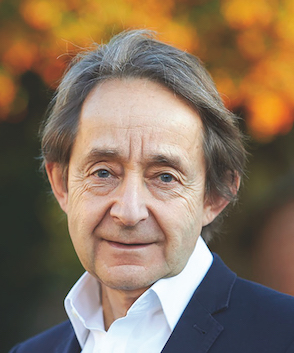
- HOME
- EDUCATION
TAKE NOTE
By | 4 years ago
Sir Anthony Seldon, vice chancellor of Buckingham University, believes lessons learned during the pandemic lockdown can transform the future of education

Independent schools will never be the same again. COVID-19 will have as much impact as the two world wars, which totally reshaped independent schools in the 20th century.
In truth, change has been long overdue. Schools, globally, have not been producing the young men and women that universities need, that employers want, or who can flourish in society. British independent schools have done a better job which is why they are so popular internationally. But they too have to change.
Employers’ organisations, including the Confederate of British Industry and Chamber of Commerce have, for a decade and more, argued that the focus on exams is not what employers want. Universities complain that new students arrive overly regimented by GCSE and A-levels, and don’t know enough. They don’t know how to think critically or how to work independently. The number of young people experiencing mental health problems at school and university meanwhile rises: there is more depression, more self-harming and more anxiety than since records began. The fees that independent schools charge have been allowed to rise too high which means that what was once accessible to doctors, airline pilots, and professional people is no longer so.
Independent schools need to take their fate into their own hands, and to see COVID-19 as the catalyst for profound and fundamental change. Too often the independent education sector has been the supplicant of government rather than using its muscle power and that of its parents to demand that the exam factory model changes for ever. Exams are very important, but in allowing them to become all important, we have lost our way and forgotten what is the purpose of education.
So how might independent schools lead in the post COVID-19 world? They need to dictate national policy – to ensure that every school is preparing the young not just to succeed at exams but to flourish at work, to be confident and comfortable in their own skin, and to be productive members of society, capable of bringing up children in secure and loving families.
Character and wellbeing education should lie at the very heart of every school, not bolted on as an extra from three to four pm on a Friday afternoon. All young people should be taught entrepreneurial skills, how to present in public, how to work harmoniously in groups, and the conventions and norms of the world of work, including punctuality, honesty and self-presentation.
The independent sector needs to buck up significantly in its preparation for university life. It blithely funnels its sixth-formers towards Russell Group universities with very little follow up. They need to consider a broader range of post school options; universities abroad, direct entry into work, two-year degree options and accelerated degrees, as my own university offers on all courses, including medicine. The institutional conservatism of careers and university advice in most schools is shocking.
Independent schools need not just to embrace existing digital technology, as it has done so well during the COVID-19 lockdown, but 4.0 technologies, artificial intelligence, machine learning, virtual reality and quantum computing to be the world leader. This will change schools and learning more than anything has since the introduction of the printing press in the 15th century.
The independent schools sector has a worldwide reputation because of its traditions and pedigree: it needs to acquire a reputation for cutting- edge innovation and technology as well. Independent schools also need to reach out and work with the state sector as never before.
Crucially, independent schools need to cut their fees by forming federations where central costs are pooled. This will help ensure the survival of the rural independent school and those far from the southeast which provide the diversity so much needed. Accessibility is key.
The choice is simple. Stop being cautious and start the process of radical and fundamental change. Pupils, parents, teachers, the Government and society will be the gainers. If the sector reverts to how it was before COVID-19, I foresee only a slow descent into irrelevance.
This article was originally published in School House Autumn/Winter2020
READ MORE FROM ANTHONY SELDON HERE



